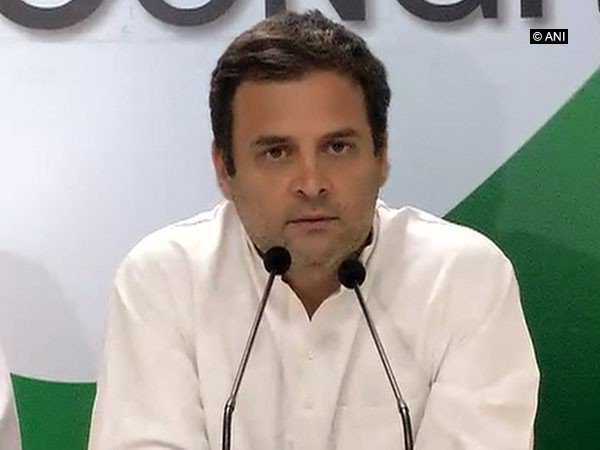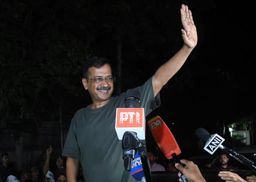
Rahul Gandhi. File photo
Aditi Tandon
Tribune News Service
New Delhi, October 24
The opposition Congress on Wednesday accused the government of violating the law related to the appointment of the CBI director and accused Prime Minister Narendra Modi of removing the agency chief to protect himself in the “Rafale scam”.
Congress president Rahul Gandhi drew a simplistic conclusion from the government’s dramatic move of sending both the CBI chief and his deputy Rakesh Asthana on leave on Wednesday morning making agency joint director K Nageshwar Rao interim in-charge.
Read: CBI chief, deputy sent on leave; Nageshwar Rao is interim director
SC to hear Alok Verma’s plea challenging move to send him on leave
Shake-up in CBI: 13 shifted including officer probing Asthana
Intervened to save CBI from becoming object of mockery: Govt
Congress, Kejri, RJD question PM after CBI chief sent on leave
“The PM is facing the heat in the Rafale scam and this morning he removed the CBI chief who was probing the issue,” Gandhi said.
Officially the Congress took the same stand in New Delhi moments after Finance Minister Arun Jaitley wondered if the opposition party had actually drawn a link between what the CBI could do in future (on Rafale) and what the government has done this morning.
“I don’t believe this to be true. How does the Opposition know what the CBI is going to do?” Jaitley asked an hour before Congress leader Abhishek Singhvi said the CBI chief had indeed been removed to protect the PM and the government in the Rafale scam.
Asked how he knew the CBI would indict the government in Rafale, Singhvi said, “There is enough evidence in the public domain.”
Legally though the government said it acted in the interest of fair play by sending both the CBI chief and the second top man on leave as both were facing counter charges, the Congress questioned the legality and morality of the move.
Citing the Delhi Special Police Establishment Act amended in 2014, Singhvi said the government, since it had no power to either appoint or remove the CBI director, had decided to send him on leave.
“The CVC has no powers to recommend removal of the CBI chief. It only has supervisory powers. Under the CBI law amended in 2014 the power to appoint or transfer the CBI chief is vested in the selection committee comprising the PM, the leader of opposition in Lok Sabha and the Chief Justice of India.”
The Congress wondered if the government was so convinced that it was right why it didn’t call a meeting of the selection committee to get the required approvals.
“Are you afraid the committee would say no?” Singhvi asked.
Further, under the law and previous SC orders, the CBI director, notwithstanding his age of retirement, is required to have a fixed tenure of two years from the date of appointment to ensure the agency’s independence.
Alok Verma has time left before that two-year period ends though he is due to retire soon.
The Congress also questioned Jaitley’s argument that the two top CBI officers were sent on leave as both had charges pending and could not be allowed to influence the CVC probe.
“Fraud equivalence of accusations is sought to be created. There’s one man (read Asthana) who has been facing grave charges from the day he was appointed CBI special director. The charge of the accused over the prosecutor is being given priority despite standing and old allegations against the accused. A fraud equivalence in charges is being peddled. This is morally, legally and politically wrong,” said the Congress pledging to up the ante on the issue.
When asked why did the SC hold Asthana’s appointment as special CBI director legal if charges against him were grave, the Congress said, “An appointment which is legally correct may not essentially be morally correct.”



























